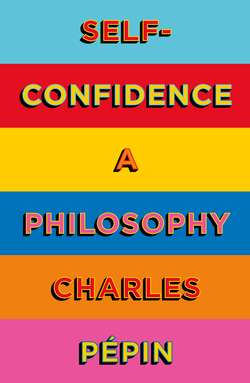Self-Confidence: A Philosophy

Реклама. ООО «ЛитРес», ИНН: 7719571260.
Оглавление
Charles Pepin. Self-Confidence: A Philosophy
Copyright
Dedication
Contents
Introduction
Cultivate Strong Ties
Go into Training
Listen to Yourself
Expose Yourself to Wonder
Decide
Get Your Hands Dirty
Swing into Action
Admire
Stay True to Your Desire
Trust the Mystery
Conclusion
Works Contributing to This Book
Index
About the Author
About the Publisher
Отрывок из книги
Because I only have to look at you to feel confidence. In myself. In life. And most of all in you.
.....
Once I was visiting a corporation to give a talk on ‘The Mystery of Confidence’. A woman came up to me afterward to say that, on returning to work after taking her maternity leave, she had lost all her self-confidence but that she had eventually regained it. It had all started because of her misery at having to leave her toddler behind. She felt brittle and on edge, and she thought she wasn’t up to performing her job, with all its many responsibilities. A few days after her return, her boss called her into his office. She expected the worst. To her surprise, he appointed her to take on a project of crucial importance. No one had ever given her so much responsibility. She immediately regained her self-confidence.
Aristotle gives a very unusual and accurate definition of friendship. A friend, says the author of The Nichomachean Ethics, is someone who makes us better. When he or she is around, we feel good, we make progress, we become more intelligent or more sensitive, we open ourselves up to new aspects of the world and of ourselves, aspects we had not previously known. A friend, says Aristotle, is a person who helps us ‘actualise our own power’. Thanks to our friend, or more accurately, thanks to the relation that we have with our friend, we develop ‘in action’ such talents that had only been latent or ‘in potential’ before. The friendship relation is therefore the occasion for our growth and development. The friend need not be motivated by pure generosity or listen endlessly to our complaints. If our relation to that person is good for us, for our talent, if it allows us to make progress, then that person is our friend: a friend to the life inside us. From this perspective, our piano or dance or drawing teacher, or the sports champion we happen to meet, or our boss at work, can be our friend, on condition that he or she gives us the opportunity to develop, to make progress.
.....